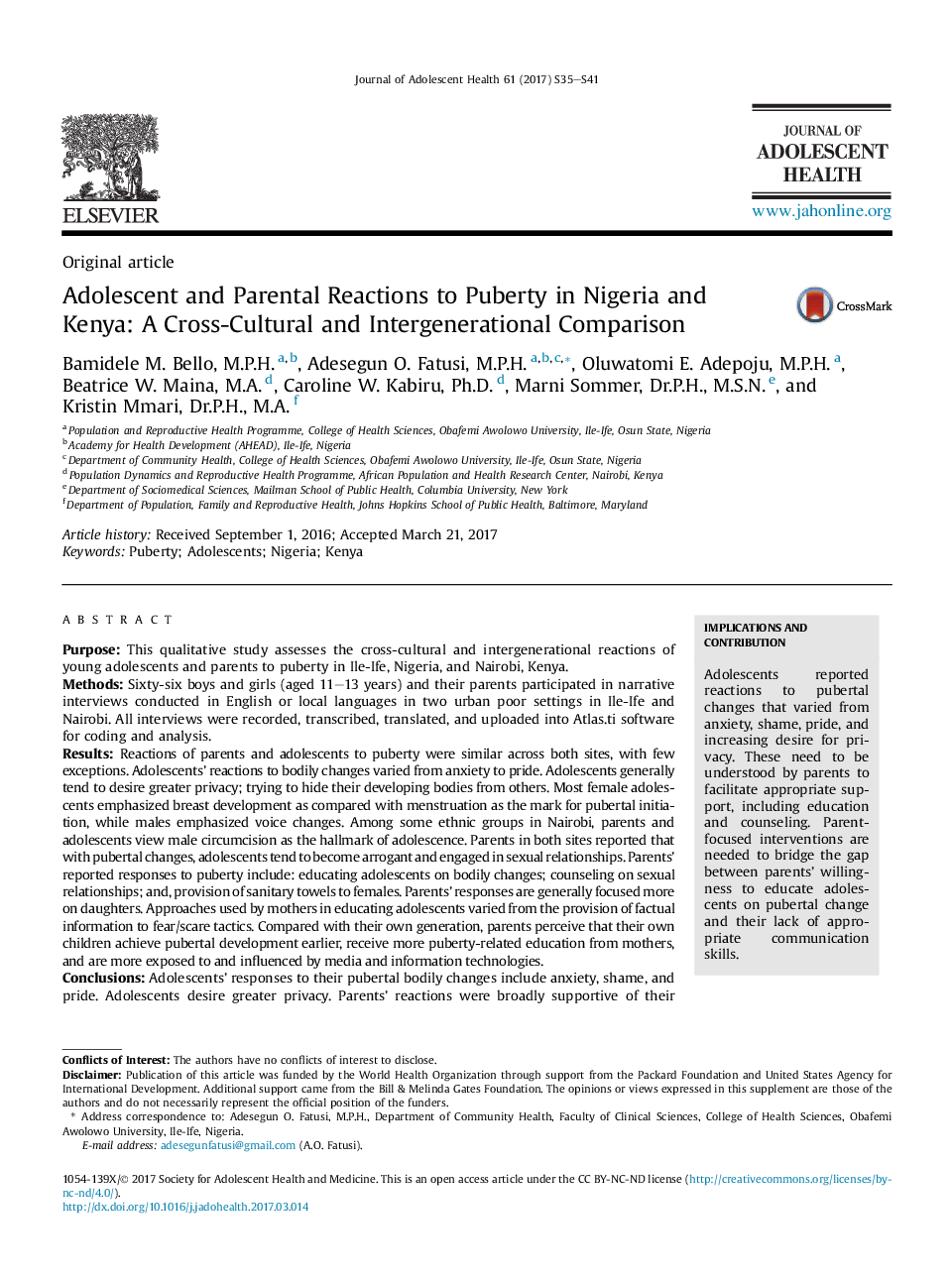| کد مقاله | کد نشریه | سال انتشار | مقاله انگلیسی | نسخه تمام متن |
|---|---|---|---|---|
| 5121203 | 1378290 | 2017 | 7 صفحه PDF | دانلود رایگان |
PurposeThis qualitative study assesses the cross-cultural and intergenerational reactions of young adolescents and parents to puberty in Ile-Ife, Nigeria, and Nairobi, Kenya.MethodsSixty-six boys and girls (aged 11-13 years) and their parents participated in narrative interviews conducted in English or local languages in two urban poor settings in Ile-Ife and Nairobi. All interviews were recorded, transcribed, translated, and uploaded into Atlas.ti software for coding and analysis.ResultsReactions of parents and adolescents to puberty were similar across both sites, with few exceptions. Adolescents' reactions to bodily changes varied from anxiety to pride. Adolescents generally tend to desire greater privacy; trying to hide their developing bodies from others. Most female adolescents emphasized breast development as compared with menstruation as the mark for pubertal initiation, while males emphasized voice changes. Among some ethnic groups in Nairobi, parents and adolescents view male circumcision as the hallmark of adolescence. Parents in both sites reported that with pubertal changes, adolescents tend to become arrogant and engaged in sexual relationships. Parents' reported responses to puberty include: educating adolescents on bodily changes; counseling on sexual relationships; and, provision of sanitary towels to females. Parents' responses are generally focused more on daughters. Approaches used by mothers in educating adolescents varied from the provision of factual information to fear/scare tactics. Compared with their own generation, parents perceive that their own children achieve pubertal development earlier, receive more puberty-related education from mothers, and are more exposed to and influenced by media and information technologies.ConclusionsAdolescents' responses to their pubertal bodily changes include anxiety, shame, and pride. Adolescents desire greater privacy. Parents' reactions were broadly supportive of their children's pubertal transition, but mothers' communication approaches may sometimes be inappropriate in terms of using fear/scare tactics.
Journal: Journal of Adolescent Health - Volume 61, Issue 4, Supplement, October 2017, Pages S35-S41
